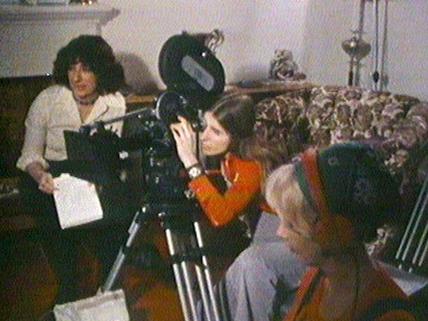
The Legacy of Studio D for Feminist Media Arts Activism
The significance of feminist film and media activism for gender and sexual rights in Canada cannot be understated. That is in many ways due to the groundbreaking work of the National Film Board of Canada’s Studio D. While many grassroots feminist film collectives and festivals emerged in the 1970s and 1980s, Studio D was the world’s first and still only federal film production unit for, by, and about women. By the time of its closure in 1996, it had released over 140 films, including three Oscar winners – more than any other live action unit in the NFB’s history.
A Celebration of Studio D: Fifty Years of Feminist Filmmaking (Sullivan, 2025)
Founded in 1974 by Kathleen Shannon, Studio D was intended to redress historic gender inequities and discrimination both within the NFB and in Canadian society more generally. Shannon expanded that mandate to:
- Provide employment and training opportunities for women in all aspects of filmmaking;
- Represent Canadian women’s interests and concerns;
- Explore women-centred creativity;
- Foreground the perspective of women on social issues;
- Foster a global community of women within Canada.
Our project, supported by a Social Sciences and Humanities Research Council Insight Grant, assesses anew the major contributions of Studio D in fostering a feminist media arts activist tradition in Canada. We examine the feminist aesthetics and politics of Studio D in order to reflect upon contemporary feminist media arts activism and how to better coordinate disparate and disconnected practices across the country. Too often, feminist community building is criticized for a lack of attention to its own roots and inter-generational connections. Histories alone cannot overcome those problems as they remain narratives of the past and so their applicability to present-day contexts is only obliquely referenced. That is why we call this a legacy project.
Legacy is more than history or retrospective. Legacy begins with acknowledging the present’s indebtedness to the past even as we advance new ideas and practices. The legacy of the National Film Board of Canada’s Studio D is fraught with hard lessons and even harder-earned victories for feminist media arts activism. We believe that a richer appreciation for the legacy of Studio D will help build a more inclusive and self-reflexive international feminist media arts community.
Reference Page Links:

Studio D

Feminist Media Arts Activism

